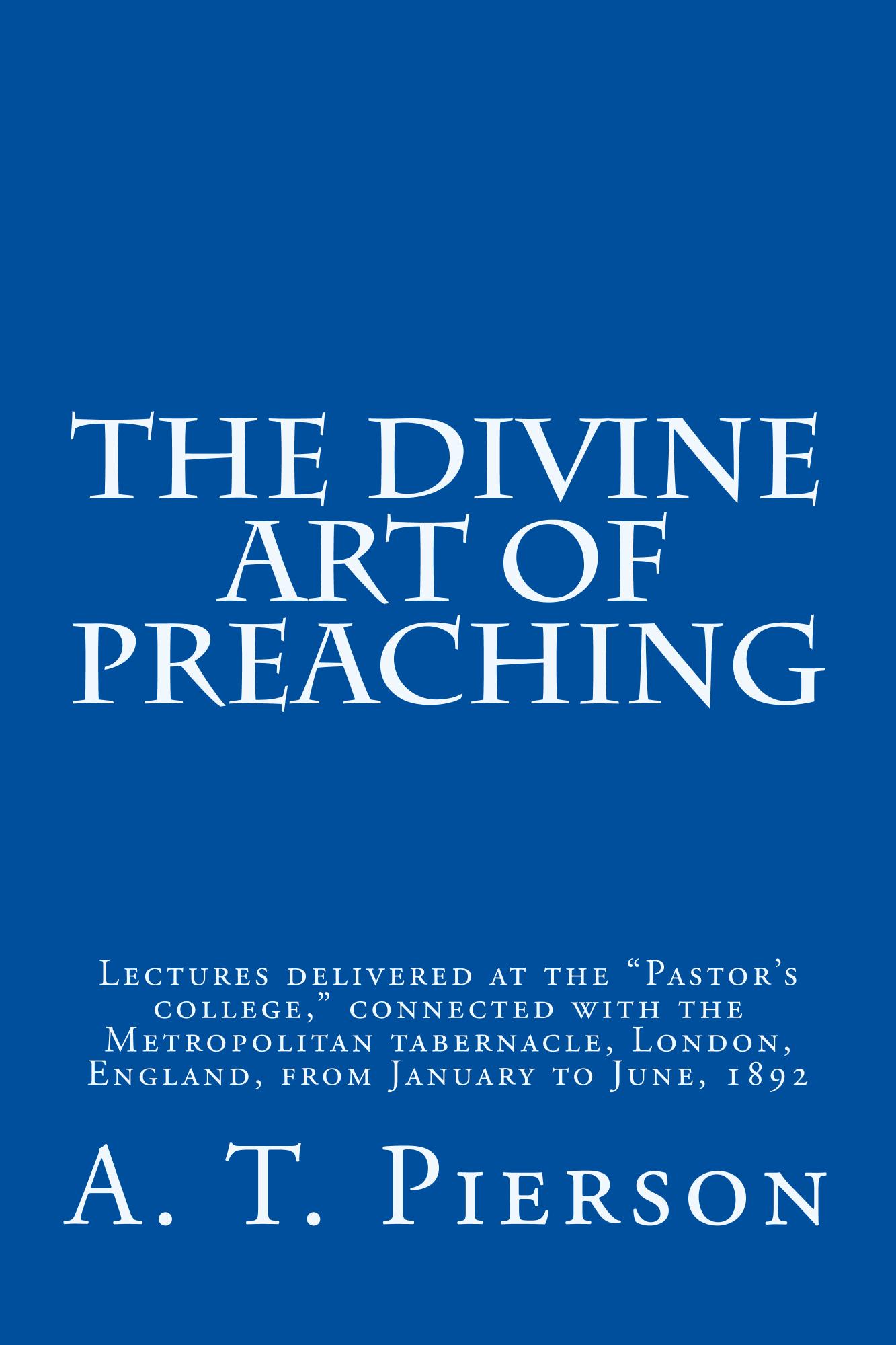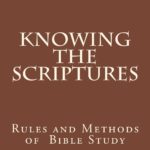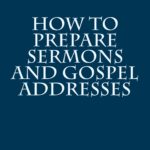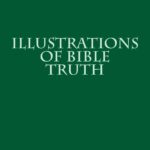Description
The Divine Art of Preaching
Lectures delivered at the “Pastor’s college,” connected with the Metropolitan tabernacle, London, England, from January to June, 1892
By
A.T. Pierson
2014
A PREFATORY WORD OF EXPLANATION. 4
CHAPTER I. THE SERMON AS AN INTELLECTUAL PRODUCT. 9
CHAPTER II. THE PREACHER AMONG HIS BOOKS. 13
CHAPTER III. THE PREACHER WITH HIS THEMES. 17
CHAPTER IV.THE PREACHER TRAINING IIIS MEMORY. 20
CHAPTER V. THE TWIN-LAWS OF THE SERMON. 24
CHAPTER VI. TYPES OF SERMON-STRUCTURE. 31
CHAPTER VII. THE PREACHER AMONG THE MYSTERIES. 47
CHAPTER VIII. THE PREACHER AMONG THE CRITICS. 55
CHAPTER IX. THE PREACHER WITH HIS BIBLE. 63
CHAPTER X. THE PREACHER IN HIS PULPIT. 74
CHAPTER XI. THE PREACHER AMONG SNARES. 81
CHAPTER XII. THE PREACHER AMONG HIS PEOPLE. 88
CHAPTER XIII. THE PREACHER COMMUNING WITH THE SPIRIT. 98
Dedication
To my gifted and generous friend and true yokefellow, Pastor James Archer Spurgeon, President of the Pastor’s College, at whose suggestion these plain talks on preaching were given, and by whose constant and cordial co-operation and courteous consideration every burden was lightened during eight eventful months of mingled sorrow and joy at the Metropolitan Tabernacle, these lectures are with brotherly love inscribed by the Author.
A PREFATORY WORD OF EXPLANATION.
EING unexpectedly called to service at the Metropolitan Tabernacle, London, during the illness and after the departure of the beloved pastor, Charles Haddon Spurgeon, from October, 1891, to June, 1892, it became a part of my privilege to speak from week to week before that intelligent and most responsive body of students then in the Pastor’s College founded by Mr. Spurgeon.
I had left in America all memoranda of every sort which might have aided in this part of my work, as this sort of service was wholly unforeseen by me; and I could only speak with such hasty preparations as the severe strain of other duties allowed. These lectures lay no claim to completeness either of matter or style. But the interest which they awakened led to their reproduction, after delivery, by the aid of a stenographer.
If any to whom the Word of the Lord is precious in these days, when there are so few true seers of God to whom the open vision is given, find herein any help to the preaching which is born of deep conviction, and baptized of the Holy Spirit, the one desire of my heart is fulfilled.
Arthur T. Pierson. .
Metropolitan Tabernacle,
London, June, 1892.
INTRODUCTION.
REACHING is a divine art, and therefore the finest of the fine arts. There is, about the logical structure of a true sermon, that which suggests all that is most beautiful in architecture; about the elaboration of its rhetorical features, all that is most symmetrical in sculpture; and about the use of imagination in illustration and metaphor, all that is most fascinating in painting; while oratory, itself a fine art, suggests that other kindred art of music to which it is so closely allied in the utilization of all that is most attractive and persuasive, melodious and martial, in the human voice. As Paul Veronese said of painting, preaching is “a gift from God.”
The essence of a sermon is sermo—a speech, spoken in behalf of, and in the name of God; in other words, it is in the best sense a divine oration. The ethics of etymology, always so instructive, suggest in that word, oratory, which is applied both to prayer and to effective speech, that in such a sermonic oration there is implied always the prayer element and factor.
An oration is a speech, or discourse, addressed to hearers with reference to a definite end or result, namely, conviction and persuasion. What we call eloquence, is simply the means to that end, and covers all the conditions of such effective utterance. The true, divine orator will seek to make himself master, therefore, of all real helps to his high art, whether they pertain to his physical, mental, moral, or spiritual being.
The first effective sermon of proper Christian history—that of Peter on the Day of Pentecost—was in some sense a model for all subsequent preaching. In Acts ii. 40 we are told, “with many other words did he testify and exhort.” Previously there is recorded the outline of Peter’s argument, which consisted mainly of a presentation of predictive prophecy as fulfilled in Christ’s character and career. May we not there-fore find here, in this one verse, a kind of inspired outline of the elements which enter into a normal sermon? I low marvelously complete, at least, is the suggestive analysis, which thus makes a sermon to consist of an argument, a testimony, and an exhortation! The argument, or logical presentation of fact and truth, lays the foundation; then upon this basis is built the confirmatory witness of experience; and both find their crowning completeness and ultimate object in the exhortation which moves the hearer to repentance and faith. It is not necessary, it may not always be wise, that each of these parts of the sermon shall be obvious or announced; but they should be present, whether latent or patent; and when they are there, the sermon appeals to the whole man. The argument addresses his reason and intellect; the testimony witnesses to his feeling and heart; and the exhortation appeals to the will and choice.
It is a first requisite of the preacher, therefore, that he shall magnify his office. The appreciation of the dignity of his art, the high character of a true sermon, the eternal issues that hang upon its preparation and delivery, cannot but impel him to studious and prayerful fitting of himself for the conscientious and successful discharge of his exalted office. No schools should command so high an order of instruction, or inspire so careful and devout a diligence on the part of the student, as the schools of theology. The preacher, as God’s ambassador, is a mediator between God and men, and slovenliness or even sluggishness in getting one’s self ready for such service is a fundamental if not unpardonable fault; it reveals a lack not only of conscience, but of competency for such a holy trust. A hallowed atmosphere should surely pervade the halls where men study the saving truth of God with reference to its use in saving souls.
The consciousness that the speaker is moving an audience to think and feel and choose in sympathy with himself is an interesting and fascinating experience—but it is something awfully responsible, for such a speaker is touching the mysterious springs of all character, conduct, and destiny.
It would be difficult to improve upon the simple analysis of the sermon already borrowed from the inspired word; for it hints the conditions of power in the preacher, as well as the hearer. How can the preacher use argument as a mighty weapon, unless he is himself a logical thinker and has mastered his theme? Only intelligent acquaintance with his subject, and the plain path whereby he has first been himself convinced, can fit him to address the intelligence of his audience and to compel his hearer to think too, and admit the truth to the sacred shrine of his own convictions. To give his testimony implies that the truth he preaches has laid hold on his own heart’s affections, and so enabled him to utter the language of experimental certainty, to speak what he knows and testify what he has seen. And a true exhortation implies that he feels such a deep passion for souls, that are outside of the safe position of believers, as that he yearns to rescue them, by persuading them to lay hold of the hope set before them in the gospel. Surely such a preacher will be a man in earnest, and will win an earnest hearing, compelling attention by his contagious zeal and enthusiasm.
In the chapters which follow, the main purpose is to make emphatic three great requisites of convincing and persuasive preaching; first, a proper use of the intellectual faculties; secondly, a diligent culture of spiritual power; and, thirdly, a reverent faith in the message as divine and authoritative. Accordingly the sermon is treated as an intellectual product, and as the fruit of the Holy Spirit’s illumination and sanctification; and somewhat is added as to the true estimate in which the preacher must hold the Word of God, whence he derives both his commission and his credentials. If any matter introduced in the discussion may appear irrelevant, it has in the author’s mind a relation more or less intimate to the full equipment of the preacher for his work. And, if no other chapter be attentively read, the reader is besought to bestow no little thought on that which treats of spiritual homiletics, and which is the outcome of the most sacred and secret history of the writer.
To do however little to secure a new era of pulpit power—of real spiritual effective-ness in preaching—of such divine pungency, fervor, force, as caused three thousand hearers on the day of Pentecost to be pricked in their hearts and earnestly to ask, “Men and brethren, what shall we do?”—this is the humble errand on which these unpretending suggestions are sent forth.
CHAPTER I. THE SERMON AS AN INTELLECTUAL PRODUCT.
T has been said that sermons are either “born, or made, or given.” If so, we shall now treat the sermon as made, as the product of the preacher’s mind and heart, the creation of his fine art, and from the human side.
To all sermon-makers one great maxim may be given: cultivate the homiletic habit; accustom yourself to the construction of sermon outlines; study analysis and synthesis; learn by patient study and practice to find out what is in a text, to mark every suggestion which it contains, and to arrange these suggestions in symmetrical and effective order. We add a second maxim scarcely less important, namely: cultivate the practical habit. Have a practical end in view always, and let everything bend to that result. Dr. Candlish said of a sermon which was submitted to his criticism: “This discourse consists of an introduction which might have been spared, a second part which does not deal with the text; and a conclusion which concludes nothing”—except, we suppose, the discourse. Contrast with this the solemn testimony of Robertson of Irvine, who wrote: “On looking back on my ministry I cannot charge myself with ever having uttered in the pulpit one word I did not believe; and I never spoke frivolously. If I were to express in one word what has been the great aim of my ministry it would be this: to lead all the human race to cry, “O Lamb of God, have mercy upon us!”
Still a third maxim belongs with the other two, and on this we now expand somewhat: cultivate the methodical habit. There are manifest advantages of method in all work that is to be thoroughly done, and sermon preparation is certainly no exception.
Paul says, in I Cor. xiv. 40: “Let all things be done decently and in order.”
The word “decently” has reference to a good appearance, what is pleasing to look upon, comely, decorous ; and the word translated “order” means arrangement, regular disposition, as in a series or succession. As will be seen, one of these words naturally suggests the aesthetical element, and the other the methodical element.
The great principle of sermon preparations, as of all other works for Christ, is, do your best. Nothing should be done in slovenly fashion that is done for the Master. We should take care even of our personal appearance, that it should be cleanly and seemly, while avoiding the finical extreme of undue punctiliousness and ceremoniousness. An unkempt person, finger nails that are in mourning, uncombed hair, unbrushed garments, soiled linen—none of these things are to be overlooked as hindrances to usefulness and service. We should train not only our morals but our manners, for, as the Latin mores suggests, there is an intimate connection between the two. We may venture perhaps to disregard some of the arbitrary regulations of a formal etiquette, but we should never disregard principles of equity and courtesy.
So, in our handiwork, even our penmanship should be legible, clean, free from interlineations and corrections, blots and blotches. An illegible hand is oftentimes the occasion of much provocation and annoyance to those who are compelled to read our letters. With regard to composition, we should frame a sentence in our mind substantially before we put it upon paper, and habituate ourselves to writing in the first instance as we desire a sentence to stand. If a carpenter is making a joint he cannot venture to cut carelessly into the wood, thinking that, if at the first the joint does not fit closely, he can more perfectly adjust it afterward. If the tenon is too small for the mortise, how can the joint be subsequently made perfect? The sculptor cannot afford to chip the marble carelessly. He may cut too deep for the symmetry of his statue, and the marble is more easily chipped off than replaced. Think as well as you can, and then express as perfectly what you think. Write as you want the writing to stand, leaving no room for subsequent corrections; if you leave room for them on your paper you will leave room for them in your mind. It is always therefore best to work up to power, in everything that you do. Let the fullness of your mental, moral, and spiritual manhood enter into all your work.
Never overlook quality in quantity. It is not how much work you do, but how good work you do, which is the all-important matter. A little well done rather than a great deal ill done should be the law of life. Any first-class piece of work lasts.
One such piece of work has oftentimes made one’s reputation. It was an eminent artist, Sir Joshua Reynolds, that said to a student: “Finish one picture, and you are a painter.” A good quality of work has a permanent effect upon the workman. There is something elevating to the man himself in an exalted product of his own hand and brain. His success stimulates him to still more successful effort, and something well done encourages him to attempt something that shall be even better done; whereas the effect of careless work is to habituate one to carelessness and to make one satisfied with an inferior product.
Again, a first-class piece of work is of course of larger value to others. It helps them to a better ideal and to a more exalted real, in their own character, life, and career. The world is in need of the best that we can do, but poor work is a damage alike to the workman and to the world.
It may be well to apply these principles in two directions mainly. First, to the reading of books, and secondly, to the composing of sermons.
The Divine Art of Preaching by A.T. Pierson




